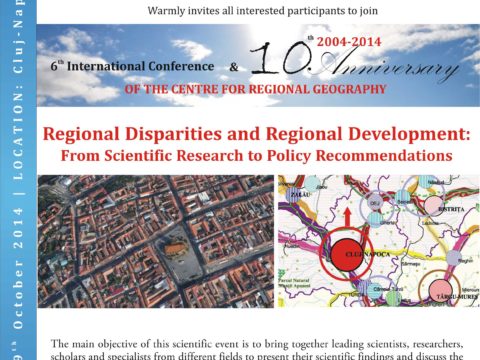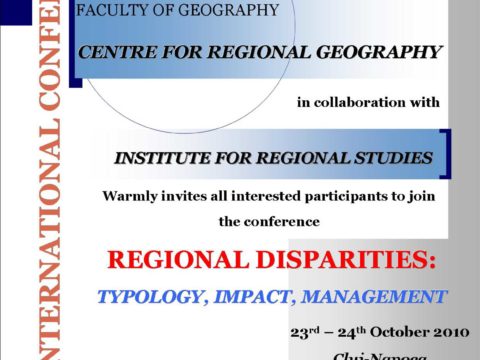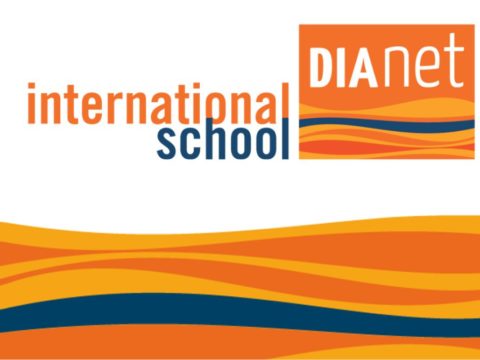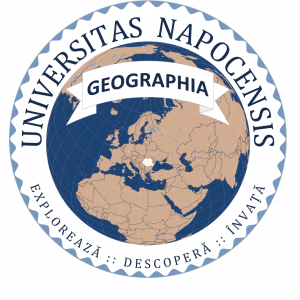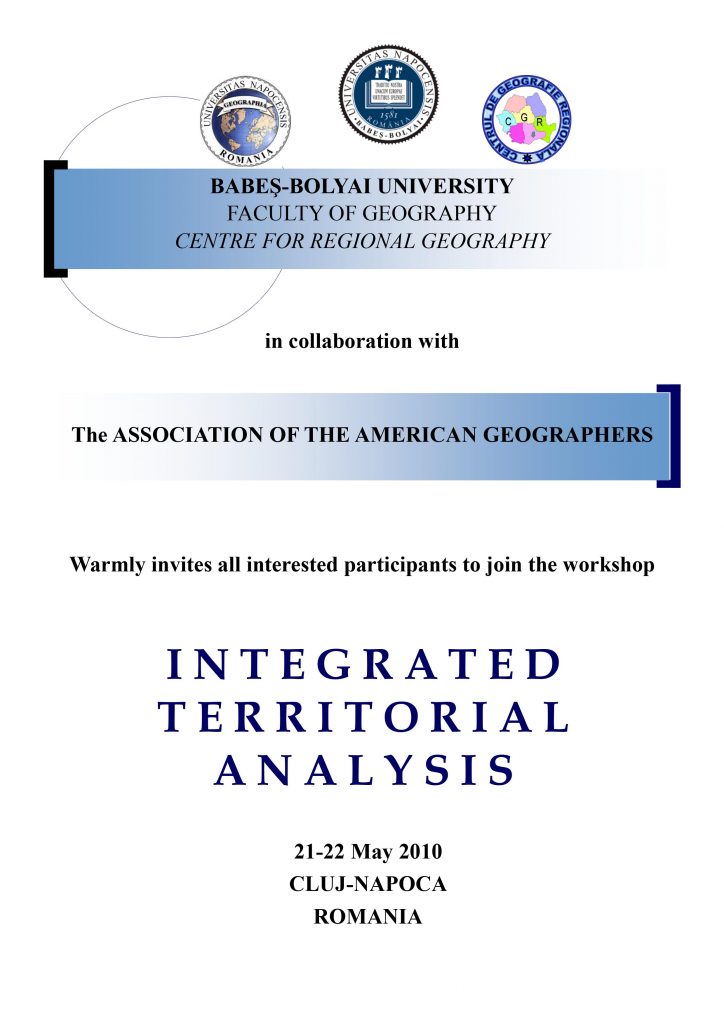 Workshop on “Integrated Territorial Analysis”, 21-22 May 2010, Cluj-Napoca
Workshop on “Integrated Territorial Analysis”, 21-22 May 2010, Cluj-Napoca
A four-member delegation comprising academics from several universities in the USA and Canada visited Romania between the 14th and the 24th of May 2010, both as representatives of their institutions and as members of the Association of American Geographers. The ten-day visit focused on finding common interests in geographical research, on promoting the exchange of ideas and enhancing the collaboration with the Romanian geographers. For a better mutual knowledge, workshops were organized in three Romanian universities, including the University of Bucharest, “Ştefan cel Mare” University of Suceava, and Babeş-Bolyai University of Cluj-Napoca.
The workshop in Cluj-Napoca, hosted by the Centre for Regional Geography on the 21st of May, was entitled Integrated Territorial Analysis and had in view the exchange of ideas and professional experience between the members of the Association of American Geographers, the members of the Centre for Regional Geography, academics from the Faculty of Geography and representatives of the Romanian Academy, Cluj Subsidiary, Geography Section.
The workshop was opened by Audrey Kobayashi, Professor at Queen’s University, Department of Geography, member of the Queen’s Research Chair, and Editor of The Annals of the Association of the American Geographers: People, Place, and Region section. All the participants had the opportunity to find out more about the worldwide educational and research activity conducted by the Association of American Geographers on a wide range of geographical topics.
The ensuing discussion was focused on participants’ contributions to research in Human Geography and Regional Geography, covering a range of topics such as migration, with emphasis on the Romanian immigration to Canada and the USA, a subject of interest for Professor Audrey Kobayashi. Mark W. Rosenberg, Professor at Queen’s University, Department of Geography and Department of Community Health and Epidemiology, presented his research in Medical and Health Geography and its direct contribution to public policies, as well as his experience in various national and international projects in the field. Lisa M.B. Harrington, Professor at Kansas State University, Department of Geography, and Secretary of the Association of American Geographers, approached issues related to Rural Geography and human-environment relations, while George W. White, Professor at South Dakota State University, Head of the Department of Geography, emphasized the importance of place and territory, in addition to language, religion and shared history, to the process of nation building, the strong interrelation of a nation with its territory, and the issue of multi-ethnicity, with case studies from Southeastern Europe.
The research activities carried out by the Centre for Regional Geography were presented by Professor Pompei Cocean, Director of the Centre for Regional Geography and Head of the Department of Regional Geography and Spatial Planning, who explained the researchers’ concern for geographical mental spaces and their involvement in the elaboration of spatial development strategies and spatial plans at different scales and levels of complexity, which deal with topics such as sustainable local/regional development and territorial cohesion. He gave as example the Spatial Plan of Mărginimea Sibiului, emphasizing the structural and functional particularities of the territory, the present dysfunctions and the major coordinates of the development strategy. Because the contributions to the issue of geographical mental spaces have already become significant, he also highlighted the perspectives on the evolution of “land”-type units in Romania, as geographical program regions with systemic features and typical mental spaces, generating a fruitful exchange of opinions.
The issue of multi-ethnicity and multiculturalism proved to be a shared concern. Thus, Ana-Maria Pop, research fellow at the Centre for Regional Geography, exemplified how ethnic identity and multiculturalism can be a determining factor in the individualization of a “land”-type unit, namely the Land of Bârsa.
As regards the concerns about functional regions, Lelia Papp, Assistant Lecturer at the Faculty of Geography, Department of Regional Geography and Spatial Planning, presented how interrelations between the city of Cluj-Napoca and its periphery are reflected in the spatial and temporal features of land use.
The presentations during the workshop and the discussions that followed aroused the participants’ interest and opened new prospects for collaboration in the field of geographical research.


